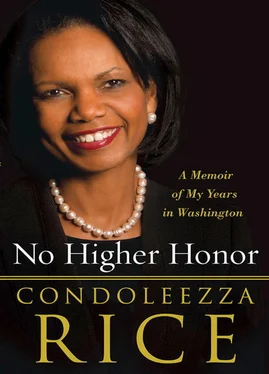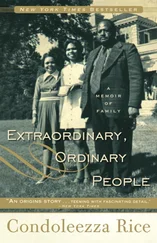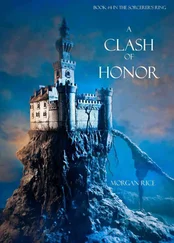“I believe the title was ‘Bin Laden Determined to Attack Inside the United States,’” I said. There were audible gasps in the chamber, particularly from victims’ families who were in attendance. The report’s title was suddenly the news of the hearings.
As the President’s national security advisor, I had the responsibility of managing the various agencies involved in national security affairs at the time of the attacks. It helped to remember that I’d done everything that I thought necessary at the time. From the very beginning, I pressed for a strategy to disable al Qaeda and directed Richard Clarke, the White House’s counterterrorism expert, to develop one. When threat levels began to spike in the summer of 2001, we moved the U.S. government at all levels to a high state of alert. Secretary of State Colin Powell and Secretary of Defense Donald Rumsfeld had secured our embassies and military bases abroad. After all, the intelligence assessment was that an attack would most likely come in Jordan, Saudi Arabia, Israel, or in Europe. The three of us talked almost every morning and assessed the situation and the need for further action. I asked Director of Central Intelligence George Tenet if there was more we could do, and we tried to find the key al Qaeda facilitator, Abu Zubaydah, with Vice President Dick Cheney asking the Saudis and Jordanians for help in doing so. With White House Chief of Staff Andrew Card present, I insisted that Dick Clarke inform domestic agencies of the heightened threat just in case an attack might come against the United States, despite the lack of intelligence pointing to the homeland. I did everything I could.
I was convinced of that intellectually. But, given the severity of what occurred, I clearly hadn’t done enough. The hardest moment that morning was walking into the room and seeing the families of the 9/11 victims. Some were accusatory and others were supportive, but they were all hurting. And I hurt for them because the United States of America had failed to protect nearly three thousand of its innocent citizens.
The room was filled to capacity, and there were cameras and television lights everywhere. I felt surprisingly calm and said a little prayer before we started. I made my opening statement, acknowledging that the country had been poorly prepared—but because of systemic failures, not the negligence of any one administration or any one person. There was no silver bullet that could have prevented the 9/11 attacks. I concluded my prepared testimony by making the point that terrorists have to be successful just once, while the defender must be vigilant 100 percent of the time.
I had to make the policy case for what we’d done in response, place the blame squarely on al Qaeda, recommend changes to prevent another attack, and restore the American people’s confidence in the Bush administration. A part of me wanted to apologize, but the collective view of my advisors was that to do so would overwhelm anything else that I said. So instead I expressed regret.
“I’ve asked myself a thousand times what more we could have done,” I told the commission. “I know that had we thought there was an attack coming in Washington or New York, we would have moved heaven and earth to try and stop it.”
• • •
YEARS LATER, in 2008, toward the end of our time in office, a terrorist attack took place in Mumbai, India. I traveled to New Delhi to lend support to the Indian government and to defuse tensions between India and Pakistan. I walked into Prime Minister Manmohan Singh’s living room and came face to face with the Indian national security advisor. He was a slight man who wore huge dark-rimmed glasses that made him look like an owl. I had heard that he had offered to resign shortly after the attack and that the prime minister had refused to accept his resignation. He, M. K. Narayanan, had the same shell-shocked look that I remembered seeing in the mirror after the attacks on the Twin Towers and the Pentagon.
I took his hands. “It’s not your fault,” I said. “I know how you feel. It’s like being in a dark room with doors all around and knowing anything might pop out and attack again. But now you have to concentrate on preventing the next attack.”
I don’t actually remember what he said in response because, in reality, I was very much inside myself. I was replaying those awful days in the wake of 9/11, days that had from that time forward been September 12 over and over again. Nothing was ever the same. It was as if there had been a crack in time.
Protest as you might to yourself, to the nation, and to the world, you never get over the feeling that you could have done better. And you resolve never to let it happen again.

1
BEFORE THE CRACK IN TIME
IN AUGUST 1998, President George H. W. Bush called and invited me to spend time with him and Mrs. Barbara Bush in Maine. I had become close to President Bush in the years after I’d served as his Soviet specialist in the National Security Council, and they had hosted me a few times before at their wonderful family home in Kennebunkport. The weathered, shingle-style house, decorated in calming pastel chintz, has an elegant yet understated decor and a spectacular view of the ocean. I’m not all that fond of being in the water. But I love to look at it, and there isn’t a prettier place to view the Atlantic than Walker’s Point. I promptly accepted the invitation.
Driving along the rocky New England coast to the entrance of the property, I was struck by two flags flying over the compound: the Texas state flag for the governor and the Stars and Stripes for the former President. (The Florida state flag would later join them when Jeb Bush was elected governor.) It was a subtle reminder that this was no ordinary family and it would be no ordinary weekend.
The elder Bush didn’t hide his desire to get me together with his son George just so we could get to know each other better and talk a little about foreign policy. Before a casual lobster dinner that night, I joined Governor Bush on the back porch, where he told me that he was confident of reelection in November and that if he won impressively (which he fully expected), he’d likely run for the presidency.
A run for the White House by the Texas governor struck me as having long odds for success. President Clinton’s years had been morally tarnished but peaceful and relatively prosperous. The governor was untested and would likely face a real pro in Vice President Al Gore. I was too polite to say those things that night, but I sure thought them.
Throughout the weekend, while fishing (he fished, I sat in the boat and watched) or exercising side by side in the small family gym on the compound, we talked about Russia, China, and Latin America. He wanted to start thinking about what to do in foreign policy if he got elected. I soon realized that he knew our southern neighbors, particularly Mexico, far better than I did. I made a mental note to read a few articles about Mexico when I got back to my home in California.
But we also talked about other things. He was interested in my upbringing in segregated Birmingham. I was attracted to his passion for improving education for disadvantaged youth. We compared notes on the problems of college admission and affirmative action. I was more traditional in my support of race-based admission; he’d tried to increase diversity at the University of Texas by other means. He proudly said that he would likely receive half of the Hispanic vote and more than a quarter of the African American vote.
I liked him. He was funny and irreverent but serious about policy. We e-mailed back and forth several times during the fall, mostly friendly chitchat about whatever was in the news—the growing conflict in the Balkans or the Clinton administration’s efforts to expand NATO. Then, a couple of days after the November election and the landslide victory Governor Bush had hoped for, I received a note from him. He wanted to follow international events more closely.
Читать дальше













